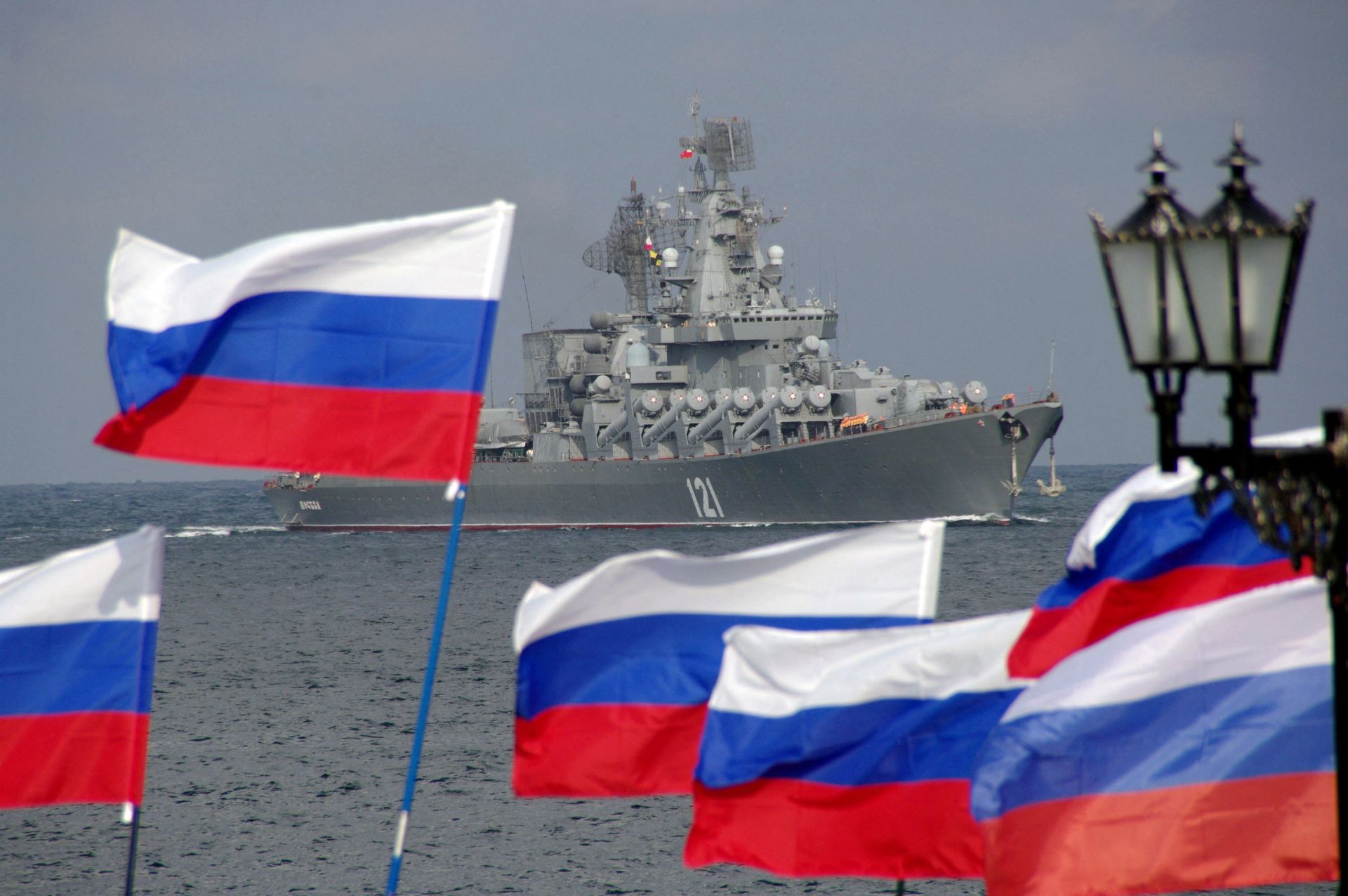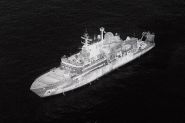- Home
- Middle East
- UK Slaps New Sanctions on Russia's Shadow Fleet

Pro-Russian supporters wave flags as they welcome missile cruiser Moskva, a flagship of Russian Black Sea Fleet, entering Sevastopol bay on September 10, 2008. ©Vasily Batanov / AFP
The UK on Tuesday tightened its sanctions on Russia's so-called shadow fleet, slapping bans on 20 more ships and blacklisting 10 other people or bodies involved in energy and shipping.
Security analysts say the fleet of aging vessels is used by Russia to circumvent international sanctions that ban it from selling oil.
Hundreds of vessels have now been sanctioned by the European Union and the UK since Russian President Vladimir Putin ordered the invasion of Ukraine in February 2022.
The UK's new additions to its assets freeze list include the Orion Star group and Rosneft Marine (UK), both said to be significant to Russia's energy sector, as well as the deep-sea research unit at the Russian defense ministry.
Although Russia's economy has not collapsed under the sanctions, officials insist they are having an impact.
"Russia's economy is slowing and the Kremlin has been forced to make increasingly painful trade-offs to support its war effort," Downing Street said in a statement.
It claimed the sanctions imposed in the last three years "have deprived Russia of at least $450 billion."
"By one estimate, that's equivalent to around two more years of funding for the invasion," it added.
The UK alone has sanctioned over 2,300 individuals, entities, and ships since the start of the invasion.
UK Prime Minister Keir Starmer said he wanted to hone the new sanctions with Britain's other G7 partners meeting this week in Canada.
"We should take this moment to increase economic pressure and show President Putin it is in his and Russia's interests to demonstrate he is serious about peace."
With peace talks stalling, Ukrainian President Volodymyr Zelensky had hoped to press US counterpart Donald Trump to step up sanctions on Russia at the G7 summit.
But as the conflict between Iran and Israel escalated, Trump left the summit early without meeting Zelensky, saying he had "big stuff" to do in Washington. And he has proved reluctant about new sanctions.
The EU has imposed 18 rounds of sanctions on Russia.
Downing Street said "new information" showed the West was creating "significant challenges" for Russian state enterprises, including funding shortfalls, delays in major projects, and growing debt due to high interest rates.
AFP
Read more



Comments